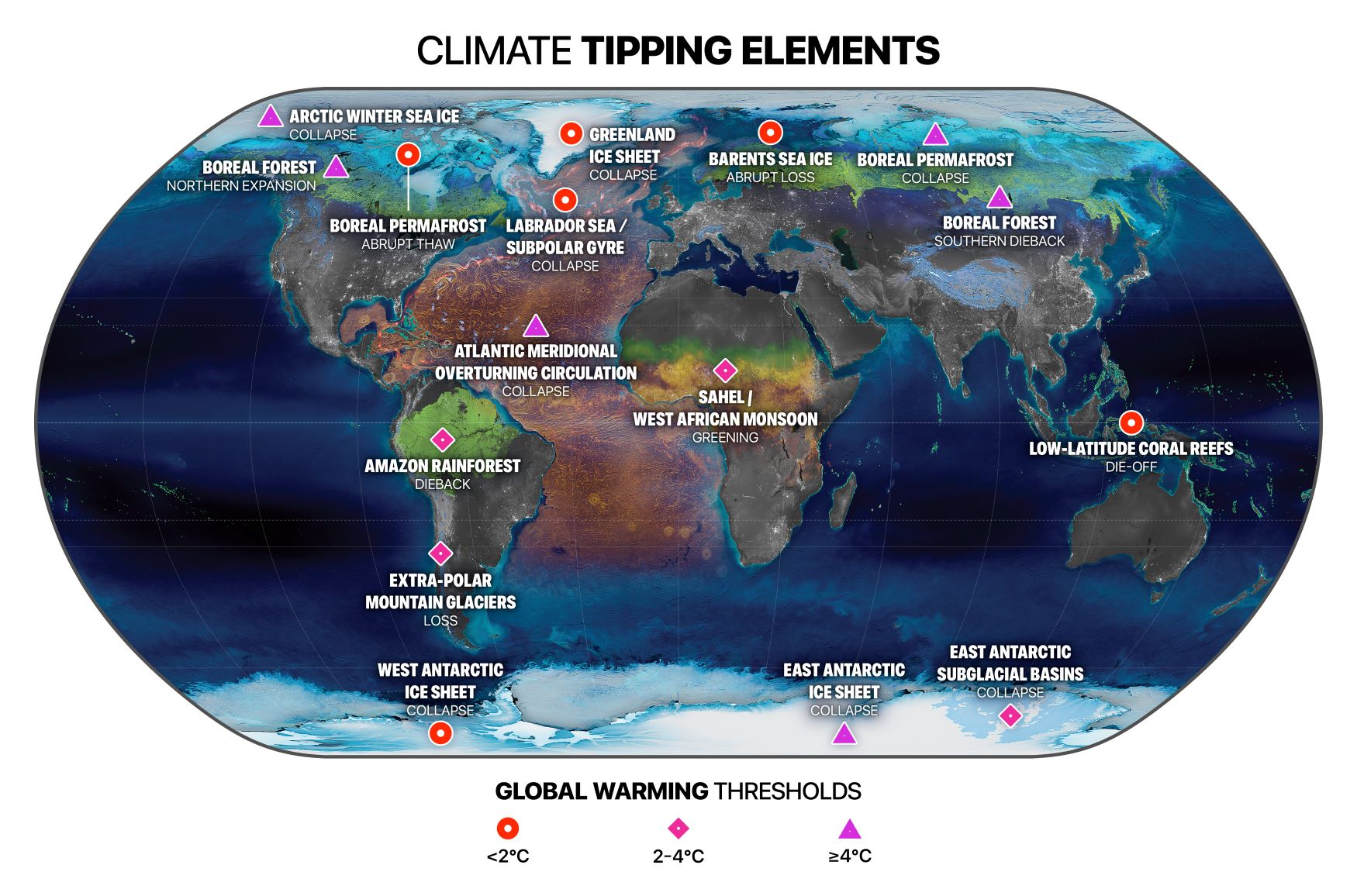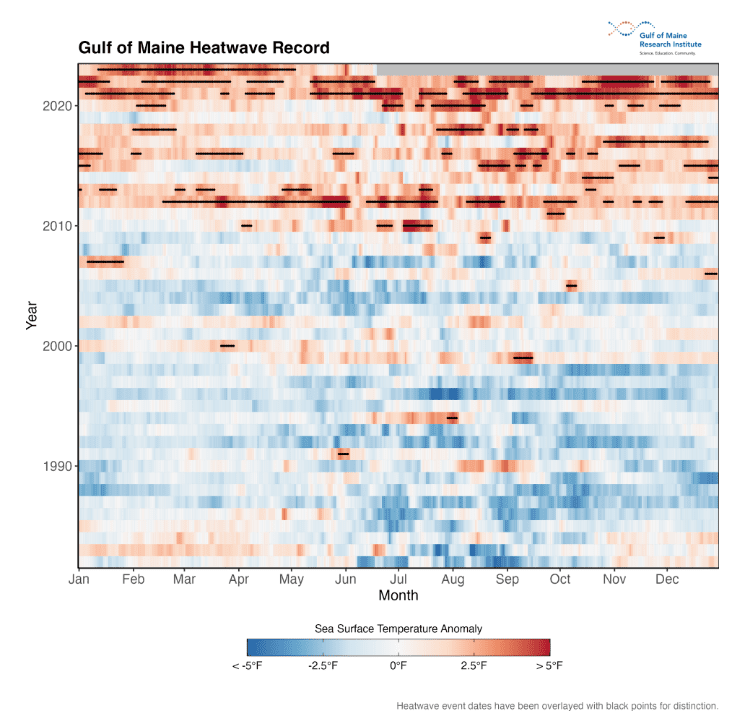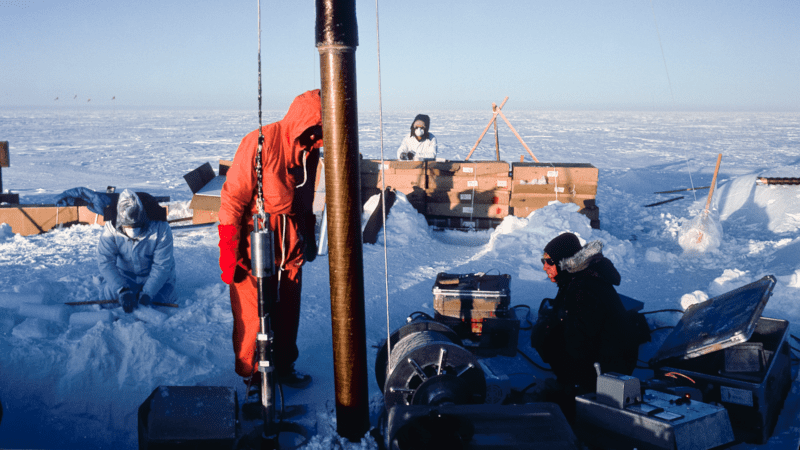Abrupt climate change is most evident, ironically, in hindsight.
Relying on ice core records, scientists can track the dynamics of past temperatures, precipitation levels and pollution loads. “We can (even) reconstruct where air masses came from,” said Paul Mayewski, a glaciologist, climate scientist and director of the University of Maine’s Climate Change Institute.
Ice cores drilled from deep within glaciers in Greenland and Antarctica act as “meteorological and air-quality stations,” Mayewski added, revealing past atmospheric conditions with precision, down to storm-by-storm changes tracing back hundreds of thousands of years.
Climate often shifts incrementally over centuries and millennia, but not always. Ice cores analyzed in the early 1990s revealed an abrupt temperature spike that occurred about 11,500 years ago: a roughly 9-degree Fahrenheit increase that spanned less than five years. It turns out that “climate changes faster than a political cycle,” Mayewski said. That same period saw “dramatic differences in storminess, precipitation and sea ice extent,” he added.
Abrupt climate change in this geologic era
Now there are disturbing signals from pole to pole that fossil-fuel emissions may be pushing the planet toward rapid climatic shifts. A consensus document based on thousands of peer-reviewed papers released in August 2021 by the U.N.’s Intergovernmental Panel on Climate Change (IPCC), included for the first time a section on “irreversibility, tipping points and abrupt change.”
The report affirmed that in Earth’s climate systems, stoked by accelerating greenhouse gas emissions, “it is virtually certain that irreversible, committed change is already underway …”
Evidence of abrupt climate change is still limited when gauged by global indicators, the IPCC report noted, but human disruptions to climate systems “can be abrupt at regional scales and irreversible on decadal to century time scales (high confidence).”

That dynamic is already evident in the Arctic, where Mayewski and other researchers have recorded shockingly rapid temperature changes that he equates in speed and magnitude to the transition that occurred 11,500 years ago. In just five years leading up to 2012, sea surface and air temperatures rose 6 to 9 degrees Fahrenheit.
“We were able to monitor (instances of) abrupt climate change in the past,” Mayewski said, “but now we actually have an example.”
Rapid changes can build on themselves, Mayewski explained, as the years since that discovery have demonstrated. As Arctic sea ice recedes, the darker water that replaces it absorbs more solar radiation than the reflective white snow and ice. A 1-degree Celsius warming can thus get amplified into a 3-to-5 degree Celsius warming, he added, converting yet more ice to water in a feedback loop that further accelerates the change.
Arctic warming has also shifted the jet stream’s circulatory pattern, allowing warmer air masses to push farther north and colder air masses to drop farther south, changes that are exacerbating drought, flooding, storms and temperature extremes, he noted.
The relatively sudden shift in the Arctic climate could signal an impending tipping point where, in Mayewski’s words, “you push a system to a dramatic and potentially irreversible change.” Climate tipping points have at times ended civilizations, Mayewski said, but that’s not a given.
Cascading effects in interlinked climate systems
Numerous climate systems are transforming more rapidly than models had predicted, including the Greenland and Antarctic ice sheets, and the boreal forests. Already this year, Canadian wildfires have burned an area larger than Portugal. Scientists warn of potential ripple effects from interlinked climate systems, where compounding effects could produce catastrophic outcomes.
The melting of Greenland glaciers, for example, has already slowed the Atlantic Meridional Overturning Circulation (known as AMOC), which carries warm equatorial waters up the lower Eastern seaboard, and over to western Europe and Iceland. Colder and saltier North Atlantic waters sink and circulate down the U.S. East Coast.
A large influx of glacial melt water is diluting northern waters, disrupting this circulatory pattern. AMOC has diminished by at least 15 percent since 1950, slowing to what some researchers estimate is a low point in the past 1,600 years.
A partial collapse of this vital system wouldn’t necessarily look like the 2004 cli-fi film “The Day After Tomorrow,” but the repercussions would likely be profound and measured on a geologic time scale.
‘A slope we slide down’
What the world is now experiencing — from dramatic lows in Antarctic sea ice and record-shattering ocean temperatures off Florida and in the North Atlantic to searing heat waves and more erratic jet stream movements — could be early indications of rapid regional shifts in climate systems.
We’re certainly confronting the hallmarks of escalating greenhouse gases scientists warned of (first in the mid-1800s, and more vociferously from the 1980s on): epic floods, unprecedented wildfires, heat domes, and punishing tornadoes, hurricanes and windstorms.
In Maine, these disruptions are manifesting in more frequent and intense marine heat waves in the Gulf of Maine, increasingly common and costly deluges, and a longer stretch of summer heat than Portland has experienced since record-keeping began.
Elevated sea-surface temperatures in the Atlantic Ocean raise the prospect of more hurricanes as well.
This year has unleashed an onslaught of weather and climate anomalies worldwide. We have left behind “the stability and reliability of the delicately tuned systems of seasons, weather, relations between species, even the shape of the world for the past ten thousand years,” observes historian and author Rebecca Solnit in the new anthology, Not Too Late: Changing the Climate Story from Despair to Possibility.

Despite clear evidence of cascading disruptions, many politicians remain willfully oblivious, failing to address the climate threat as the existential crisis it is.
The longer we continue spewing out carbon emissions, the faster we will hurdle toward irreversible changes. Every ton of carbon we emit is like a rock in an avalanche, rolling with the inarguable force of gravity in a direction we don’t want to go. The more rocks that tumble downward, the more damage the planet — and all its inhabitants — will suffer.
“We have both no time and more time,” writes climate scientist Kate Marvel. “Climate change isn’t a cliff we fall off, but a slope we slide down.” We won’t make it back to the stability that graced life on this planet over recent millennia. But we can scramble to avert accelerating upheaval and abrupt change, improving our odds of weathering the future.


